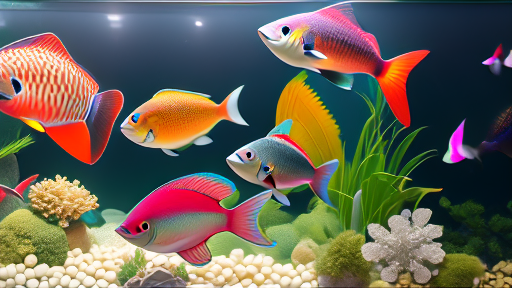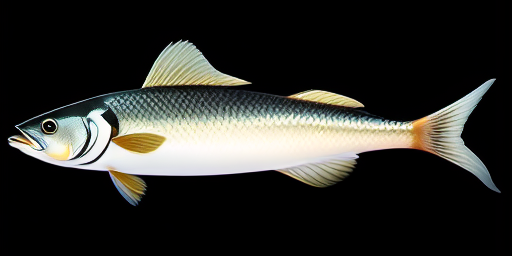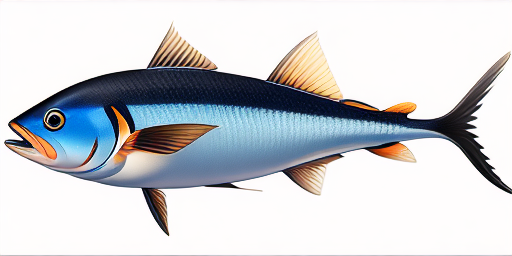Fish is often celebrated as one of the healthiest protein sources, packed with essential nutrients, omega-3 fatty acids, and vitamins. According to American dietary guidelines, it’s recommended to consume fish at least twice a week. However, not all fish are created equal. Some species are loaded with mercury, PCBs, and other contaminants, while overfishing and unsustainable practices further complicate choices.

5 Healthiest Fish to Eat
1. Herring
Herring is a nutritional powerhouse, offering one of the highest levels of omega-3 fatty acids. These vital fats are important for heart health, inflammation reduction, and brain function. Herring is also low in mercury and rich in vitamin D, selenium, and protein. It’s an excellent choice for pregnant women as it promotes brain development in babies. Plus, the small, edible bones provide calcium. Whether grilled, pickled, or added to salads, herring is versatile and delicious.
2. Rainbow Trout
Rainbow trout is a ‘best choice’ fish according to the FDA, thanks to its low mercury levels and sustainable fishing practices. Omega-3 fatty acids, protein, potassium, and B vitamins are all abundant in this vibrant fish. These nutrients support heart health, bone integrity, and cell metabolism. Rainbow trout pairs beautifully with roasted vegetables, fresh greens, or rice dishes, making it a delightful meal option.
3. Wild-Caught Salmon (Including Canned)
Salmon caught in the wild is one of the best sources of omega-3 fatty acids. Wild salmon has less toxins and contaminants than farmed salmon. Another convenient and reasonably priced choice is canned wild salmon. Rich in essential minerals and vitamins, salmon fits seamlessly into low-carb diets and can be enjoyed grilled, baked, or in soups and stews.
4. Sardines (Wild-Caught, Including Canned)
Despite their small size, sardines are incredibly nutritious. Omega-3 fatty acids, calcium, vitamin D, and protein are all abundant in them. Their anti-inflammatory properties make them heart-friendly, while their high mineral content supports bone health. Fresh or canned, sardines can be enjoyed in salads, pasta, or as a snack with crackers. However, individuals with kidney issues should consult their doctor before consuming sardines.
5. Atlantic Mackerel
Atlantic mackerel stands out for its lower mercury levels compared to king mackerel. It lowers the risk of heart disease since it is high in protein, good fats, vitamin B12, and antioxidants. Additionally, sustainable fishing practices make this species an environmentally friendly choice. Atlantic mackerel tastes excellent when grilled or pan-fried and paired with rice and steamed vegetables.

5 Fish to Avoid
6. Orange Roughy
Orange roughy, also known as slimehead, can live up to 150 years, which means they’ve had a long time to accumulate mercury. These fish are heavily overfished, and their capture methods often damage fragile marine ecosystems. Due to their high mercury content and environmental concerns, it’s best to skip orange roughy.
7. Atlantic Halibut (Wild-Caught)
Atlantic halibut faces significant overfishing issues, with slow population recovery rates. Additionally, these fish can have high mercury and purine levels, which may contribute to gout and kidney stones. Opt for farm-raised halibut from sustainable sources instead.
8. Farmed Atlantic Salmon
Farmed Atlantic salmon often comes with a range of concerns, including pollution, antibiotic use, and reduced nutritional quality. These fish are typically raised in overcrowded conditions and treated with chemicals to control diseases. If possible, choose wild-caught salmon instead.
9. Bluefin Tuna
Bluefin tuna is both high in mercury and overfished, placing it on the endangered species list. Organizations like the WWF have warned against consuming this fish due to unsustainable fishing practices. Substitute bluefin tuna with alternatives like canned sardines or organic poultry.

10. King Mackerel
While mackerel is generally healthy, king mackerel contains dangerously high mercury levels. This fish sits high on the food chain, increasing its toxin accumulation. Children, pregnant women, and older adults are especially advised to avoid king mackerel.
Final Thoughts
Lean protein, omega-3 fatty acids, and other vitamins can still be found in plenty in fish. However, it’s essential to make informed choices to protect your health and support sustainable fishing practices. Always check resources like the Monterey Bay Aquarium’s Seafood Watch or NOAA Fisheries for up-to-date recommendations.
